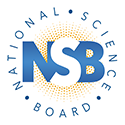

|
The Board approved the following RFP: | |
Social and Behavioral Sciences | |
|
Division of Science Resources Studies Request for Proposals and Award of a Contract for Conduct of the Doctorate Data Project (DPP) (NSB-00-207) |
Amount not to exceed $18,000,000 60 months |